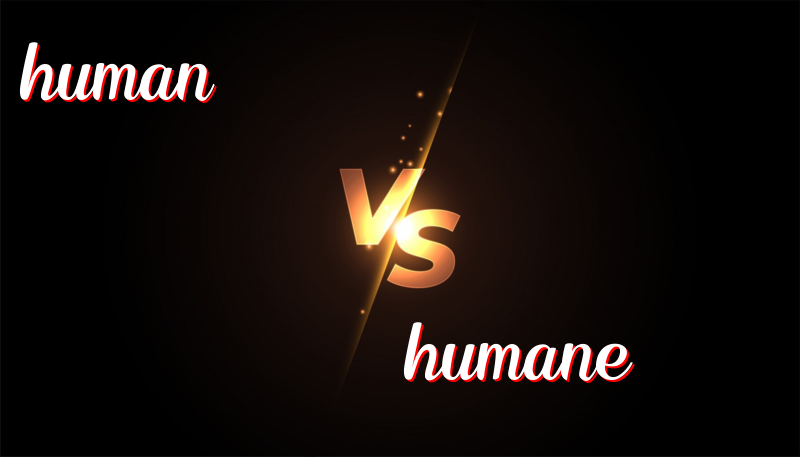英語單詞human 與 humane的區別
September 01, 2024
人類 (Human) 與 人道 (Humane) 的區別
在英語中,雖然 “human” 和 “humane” 這兩個詞乍看之下相似,但它們有不同的意義和用法。在本文中,我們將詳細介紹這兩個詞的歷史、用法,以及如何記住它們的區別。
“Human” 的歷史與用法
“Human” 這個詞源自拉丁文的 “humanus”,意思是 “人類”。這個詞用來描述我們這個物種以及我們的特徵。
例句:
- Humans are capable of complex thought and emotion.
人類有能力進行複雜的思考和情感。 - In history, humans have built great civilizations.
在歷史上,人類建立了偉大的文明。 - This museum showcases human achievements throughout the ages.
這家博物館展示了人類各個時代的成就。 - Researchers are studying human behavior to understand social dynamics.
研究人員正在研究人類行為以理解社會動態。 - Humans are social creatures who thrive on interaction.
人類是依賴互動而茁壯成長的社會生物。
“Humane” 的歷史與用法
“Humane” 也是源自拉丁文 “humanus”,但它具有更多的人文關懷意味,表示有同情心、仁慈或對人類和動物表現出關愛和尊重。
例句:
- She has a very humane approach to handling stray animals.
她以非常人道的方式處理流浪動物。 - The program aims to promote humane treatment of prisoners.
該計劃旨在促進對囚犯的仁慈待遇。 - It is important to find humane solutions to world hunger.
找到應對世界飢餓的仁慈解決方案是很重要的。 - This organization’s mission is to ensure humane practices in agriculture.
這個組織的使命是確保農業中的人道實踐。 - Many believe that a humane society is one that takes care of its most vulnerable members.
許多人認為,人道社會應該照顧其最脆弱的成員。
如何記住 “Human” 與 “Humane” 的區別
記住這兩個詞的不同意義的一個簡單方法是:”human” 表示人類這個物種,而 “humane” 表示有關心與同情心。
總結
“Human” 用來描述有關人類的特徵和行為,而 “Humane” 強調同情和仁慈。在使用這兩個詞時,請注意它們的細微差別,以便更加準確地傳達您的意圖。

Leave a Reply
You must be logged in to post a comment.